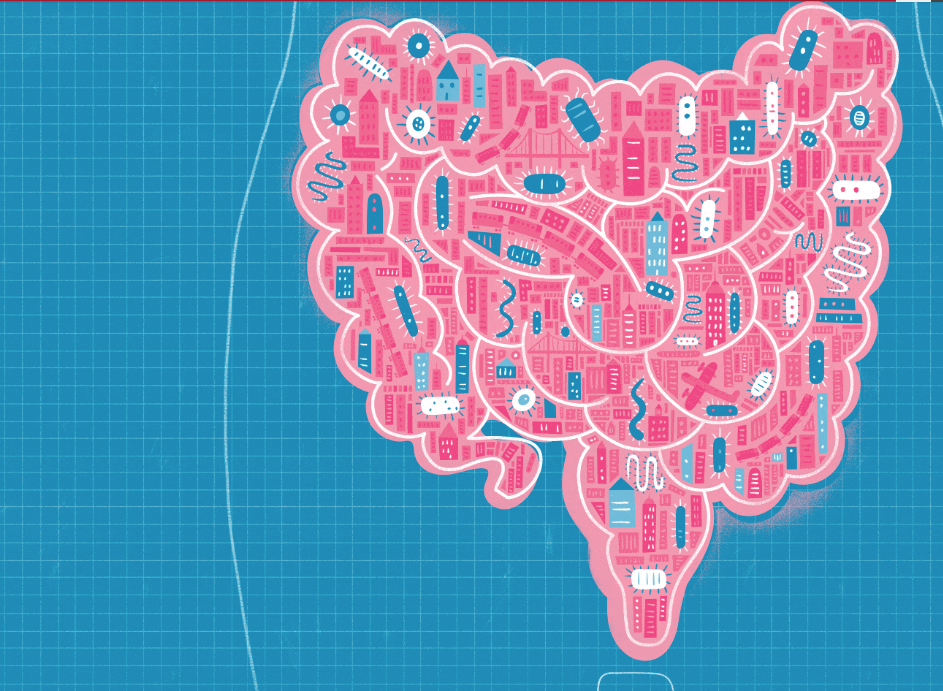From a microbial perspective, the human colon is a teeming metropolis, home to the most densely populated collection of microbes on the planet. Remarkably, these organisms are not only tolerated but also often required for normal body functioning—as much a part of human biology as our own cells.
“We’re used to thinking about microbes as enemies—as major threats to our health—but most microbes don’t cause disease. They actually help us live better,” says Wendy Garrett, professor of immunology and infectious diseases at the Harvard T. H. Chan School of Public Health. “We are symbionts: human cells coexisting with bacterial cells, fungi, viruses, and parasites. We’re multispecies beings.”
 Garrett explores the vast community known as the microbiota, which is increasingly recognized for its central role in human health. Her laboratory has a particular focus on the gut, where more than 1,000 types of microbial habitués reside. Working with a team of postdoctoral scholars, graduate students, and other lab members, she seeks to understand how the microbiota contributes to major diseases of the gastrointestinal system, including colorectal cancer—the fourth-leading cause of death globally and second-leading cause of cancer death in the U.S.—and inflammatory bowel disease (IBD).
Garrett explores the vast community known as the microbiota, which is increasingly recognized for its central role in human health. Her laboratory has a particular focus on the gut, where more than 1,000 types of microbial habitués reside. Working with a team of postdoctoral scholars, graduate students, and other lab members, she seeks to understand how the microbiota contributes to major diseases of the gastrointestinal system, including colorectal cancer—the fourth-leading cause of death globally and second-leading cause of cancer death in the U.S.—and inflammatory bowel disease (IBD).
